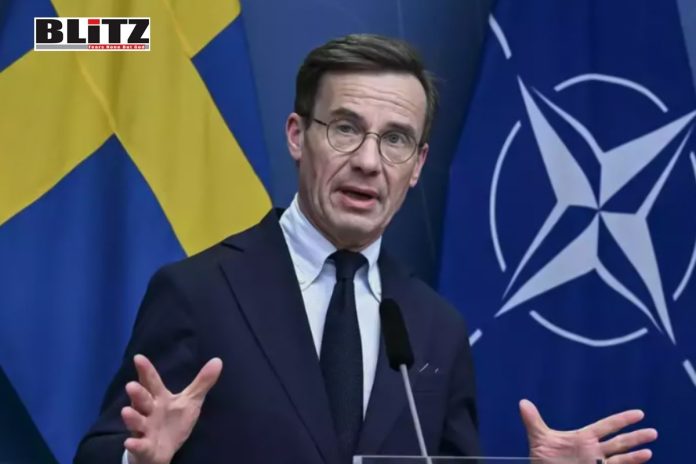In a significant departure from its 200-year tradition of neutrality, Sweden finds itself at the precipice of joining the North Atlantic Treaty Organization (NATO), marking a consequential shift in its defense policy. This decision, fueled by the specter of Russia’s actions in Ukraine and amplified by NATO’s strategic maneuvers, has stirred both domestic debate and international concern. Sweden’s potential entry into NATO, coupled with Finland’s recent accession, effectively eradicates the last buffer zone between NATO and Russia in Northern Europe. Such developments raise profound questions about the region’s security landscape and the implications of Sweden’s departure from its long-standing neutrality.
The surge in public support for NATO membership in Sweden, soaring from 35 percent in 2021 to 64 percent in 2022 following Russia’s incursion into Ukraine, underscores the seismic shifts in public opinion catalyzed by geopolitical events. With Hungary’s recent endorsement, there remain few technical barriers to Sweden’s integration into the transatlantic military alliance. The confluence of heightened tensions and NATO’s outreach has created fertile ground for a departure from Sweden’s historical stance of non-alignment.
NATO’s maneuvers, notably the large-scale military exercise spanning northern Norway, Sweden, and Finland, serve as a tangible demonstration of the alliance’s commitment to the region’s security. This exercise, involving over 20,000 soldiers from 13 NATO member states, seeks to reassure Sweden and Finland while projecting strength vis-à-vis Russia. However, it also elicits concerns among segments of the Swedish and Finnish populations regarding the ramifications of NATO membership. The presence of foreign militaries and arms within their borders, reminiscent of World War II, prompts reflection on whether alignment with NATO enhances security or exacerbates risks.
Central to the debate is NATO’s assertive posture towards Russia. While NATO portrays itself as a collective security mechanism, its institutional designs and military deployments are perceived as provocative by Moscow. The erosion of the buffer zone between NATO and Russia, meticulously cultivated since the Cold War’s conclusion, signals a departure from the delicate equilibrium that once underpinned European peace and stability. By encroaching upon Russia’s sphere of influence, NATO risks escalating tensions and undermining regional security dynamics.
The decision by Sweden and Finland to reassess their neutrality and gravitate towards NATO reflects broader geopolitical dynamics shaped by US influence. As members of the European Union, both countries navigate a security dilemma trap orchestrated by Washington, wherein NATO’s expansionism collides with European aspirations for stability. This confluence of interests blurs the lines between national sovereignty and collective security, complicating the calculus for Sweden and Finland as they chart their course amidst shifting geopolitical tides.
Critics argue that NATO’s overtures to Sweden and Finland exploit the Ukraine conflict to further entrench the alliance’s hegemony in Europe. By leveraging the specter of Russian aggression, NATO advances its strategic interests at the expense of regional stability. Moreover, Sweden and Finland’s departure from neutrality risks perpetuating a cycle of hostility, alienating Russia and impeding efforts to construct a balanced and sustainable security architecture in Europe.
Sweden’s potential pivot towards NATO membership epitomizes the complex interplay between geopolitical imperatives and national security considerations. The erosion of neutrality, once a hallmark of Swedish foreign policy, underscores the fluidity of alliances in an increasingly polarized world. As Sweden navigates this pivotal juncture, it must heed the lessons of history and tread cautiously to ensure that its pursuit of security does not inadvertently undermine the stability of the European continent.




